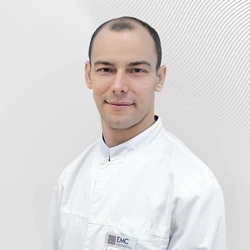Bowel cancer
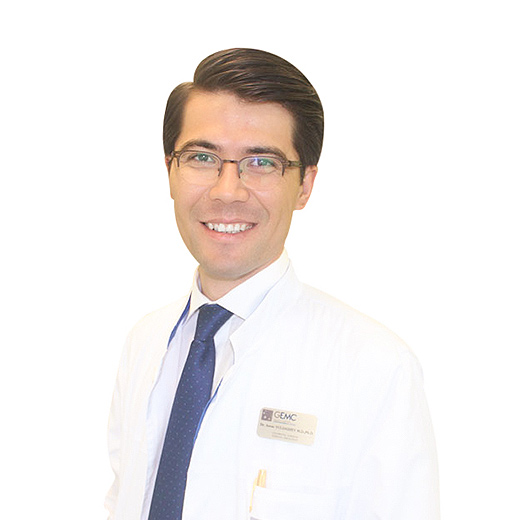
Narrated by Anvar Yuldashev -
Coloproctologist, oncologist surgeon, Ph.D.
What is colorectal cancer
"Colorectal cancer" is a collective term for cancer (tumors) of various parts of the colon and rectum. Among the many oncological diseases, this pathology remains the least covered and the most covered by myths and fears of patients, but, nevertheless, modern early diagnosis capabilities give reason to consider CRC to be ~ 95% preventable cancer.
Prevalence of colorectal cancer
Statistics from developed countries show a steady increase in newly diagnosed cases of colon and rectal cancer compared with malignant tumors of any other localization, except lung cancer. The incidence varies globally, with the highest rates in Australia and New Zealand, Europe and North America, and the lowest in Africa and Central and South Asia. Such geographical differences are likely determined by the degree of influence of CRC risk factors — dietary characteristics, bad habits, and environmental factors against the background of a genetically determined susceptibility to the development of this type of cancer.
Colorectal cancer occupies one of the leading positions in Russia. Among men with malignant neoplasms, CRC ranks 3rd after lung and stomach cancer, and in women, respectively, after breast cancer and skin cancer. An alarming fact is the high mortality rate in the 1st year of life after diagnosis, due to the fact that at the initial visit of patients to the doctor, more than 70% of patients with colon cancer and more than 60% of patients with rectal cancer already have advanced forms of cancer (stages III-IV), while About 40% of patients undergo surgical treatment.
Approximately 140,000 new cases and about 50,000 deaths of CRC are reported annually in the United States. Surprisingly, it is in the United States that there is a slow but steady downward trend in the incidence of CRC, and CRC survival rates are among the highest in the world. Reporting data from the US National Cancer Institute show that 61% of patients with this diagnosis have overcome a five-year survival rate.
In the USA and many other Western countries, improved results have been achieved, in particular, by timely detection and removal of colon polyps, diagnosis of CRC at an early stage, and more effective treatment. Unfortunately, in many countries with limited resources and other health infrastructure, especially in Central and South America and Eastern Europe, deaths from CRC continue to increase.
Risk factors for colorectal cancer
Colorectal cancer most often develops as a degeneration of adenomatous (glandular) polyps.
Despite the fact that a hereditary predisposition significantly increases the risk of developing CRC, most cases are sporadic (in other words, unpredictable, episodic) rather than familial: approximately 80-95% of cases are sporadic versus 5-20%, having a hereditary cause. But among all other types of cancer in humans, CRC shows the greatest association with family morbidity. Studies of the molecular mechanisms of colorectal cancer development have revealed a number of genetic disorders, most of which are inherited in an autosomal dominant manner and significantly increase the risk of developing cancer. Familial adenomatous polyposis and Lynch syndrome (hereditary non-polypous colorectal cancer) They are the most common of the familial cancers with studied genetic defects, together they account for only about 5% of cases of colorectal cancer.
Of the other most well—known predisposing factors, inflammatory bowel diseases (ulcerative colitis, Crohn's disease) are worth noting - the risk of cancer increases with the duration of these diseases. The overall incidence of colorectal cancer begins to increase approximately 8-10 years after the onset of inflammatory bowel disease and increases to 15-20% after 30 years. The main risk factors are the duration of the disease, the prevalence of the lesion, young age and the presence of complications.
Age is a significant risk factor:Colorectal cancer is rare before the age of 40, but the incidence of colorectal cancer increases in each subsequent decade and reaches a maximum in 60-75 years.
There are factors that increase the risk of developing colorectal cancer. It has been found that populations of people with a high incidence of colorectal cancer consume food that is low in fiber, but at the same time high in animal protein, fat, and refined carbohydrates. Obesity increases the risk of colorectal cancer by about 1.5 times, and to a greater extent in men. Excessive alcohol consumption and smoking are also among the factors that increase the sporadic incidence of colon polyposis and colorectal cancer, and significantly increase the risk of cancer in patients with hereditary diseases of the colon (for example, with the syndrome Lyncha).
What is colorectal cancer screening?
These are methods for actively identifying individuals with risk factors for developing CRC or with asymptomatic CRC, based on the use of special diagnostic methods. Screening studies for colorectal cancer help to significantly reduce the likelihood of its development, as they can detect precancerous bowel disease or cancer at an early stage and provide timely medical care.
First of all, persons who have cases of colon or rectal cancer, adenomas, and inflammatory bowel diseases among their first-line relatives (children, parents, and siblings) are subject to screening. Having a relative with such a diagnosis increases the risk by about 2 times compared to the general population.
The recommendations of a number of scientific communities on the study of colorectal cancer (American College of Gastroenterology, Multisociety Task Force on Colorectal Cancer from the American Cancer Society, American College of Radiology) contain instructions on the timing of the first colonoscopy in the following patients:
-
earlier, before the age of 40, in patients with immediate family members with intestinal adenoma diagnosed before the age of 60;
-
10-15 years earlier than the "youngest" CRC in the family was identified, and/or this diagnosis was established at 60 years of age or younger.
The timing of screening studies may be changed if the patient has additional risk factors for CRC: radiation exposure to the abdominal cavity at an early age for cancer, diagnosis of acromegaly (which may lead to the development of colon adenomatosis), kidney transplantation (as a reason for long-term immunosuppressive therapy).
Symptoms of colorectal cancer
 Tumors of the colon and rectum grow slowly, and it takes a long enough period of time before the first signs may appear. The symptoms depend on the location of the tumor, type, degree of spread, and complications. The peculiarity of colorectal cancer is that it "makes itself felt" quite late. In other words, such a tumor is not visible and imperceptible to the patient; only when it grows to a significant size and grows into neighboring organs and/or gives metastases, the patient begins to feel discomfort, pain, and notice blood and mucus in the stool.
Tumors of the colon and rectum grow slowly, and it takes a long enough period of time before the first signs may appear. The symptoms depend on the location of the tumor, type, degree of spread, and complications. The peculiarity of colorectal cancer is that it "makes itself felt" quite late. In other words, such a tumor is not visible and imperceptible to the patient; only when it grows to a significant size and grows into neighboring organs and/or gives metastases, the patient begins to feel discomfort, pain, and notice blood and mucus in the stool.
The right part of the colon has a large diameter, a thin wall and its contents are liquid, so blockage of the intestinal lumen (obstruction) develops last. Patients are more often concerned about gastrointestinal discomfort caused by disorders of the functions of neighboring organs — stomach, gallbladder, liver, pancreas. The bleeding from the tumor is usually hidden, and fatigue and morning weakness caused by anemia may be the only complaints. The tumors sometimes become large enough to be felt through the abdominal wall before other signs appear.
The left part of the colon has a smaller lumen, the fecal matter in it is of a semi—solid consistency, and the tumor tends to narrow the intestinal lumen in a circle, causing intestinal obstruction. Stagnation of intestinal contents activates the processes of putrefaction and fermentation, which is accompanied by bloating of the intestine, rumbling in the stomach. Constipation is replaced by copious liquid, fetid stools. The patient is worried about colicky abdominal pain. Stool can be mixed with blood: bleeding from colon cancer is most often associated with the collapse or ulceration of the tumor. Some patients have symptoms of intestinal perforation with the development of peritonitis.
In rectal cancer, the main sign is bleeding during bowel movements. Whenever there is bleeding or discharge of blood from the anus, even in the presence of severe hemorrhoids or diverticular disease, concomitant cancer should be excluded. There may be an urge to defecate and a feeling of incomplete bowel movement. Pain occurs when the tissues surrounding the rectum are involved.
In some cases, even before the onset of intestinal symptoms, patients may show signs of metastatic damage – the spread of the tumor to other organs, for example, enlarged liver, ascites (accumulation of fluid in the abdominal cavity), enlarged supraclavicular lymph nodes.
A violation of the general condition of patients can be observed in the early stages and is manifested by signs of anemia without visible bleeding, general malaise, weakness, and sometimes fever. These symptoms are typical for many diseases, but their appearance may be a reason to immediately consult a general practitioner.
Colorectal cancer has many "masks", so you should consult a doctor for advice.:
-
with increased fatigue, shortness of breath, uncharacteristic pallor of the patient, if they had not been previously;
-
for prolonged constipation or diarrhea;
-
for frequent/persistent abdominal pain;
-
if there is visible blood in the stool after defecation;
-
if there is hidden blood in the stool analysis.
If there is acute abdominal pain, bloating or asymmetry of the abdomen, or if there is no discharge of stool or gases, an ambulance should be called or medical attention should be sought urgently.
CRC screening and diagnosis
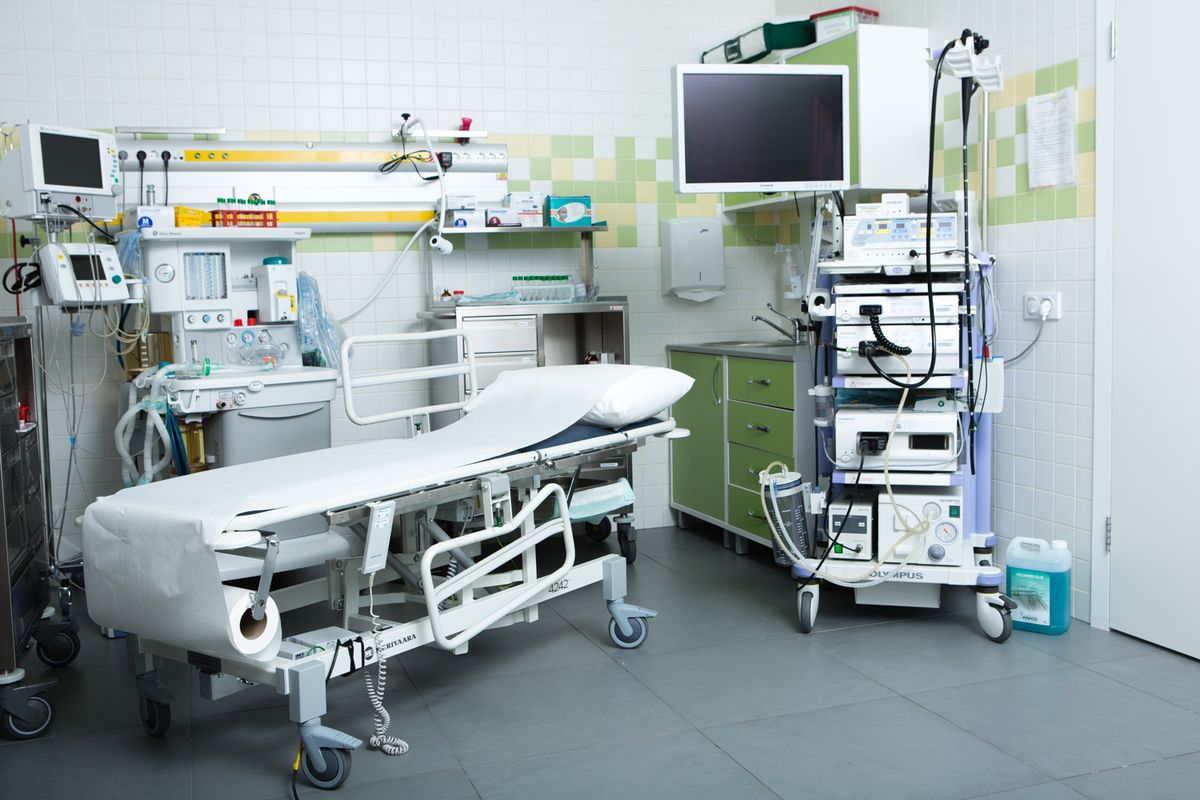 In the presence of the complaints described above, as well as in patients belonging to a high-risk group for CRC disease, an examination is performed. The most informative and generally accepted method of early diagnosis is colonoscopy, an endoscopic (intraluminal) examination of the mucous membrane of the rectum, colon and part of the small intestine (for about 2 m). All pathologically altered tissues and polyps will either be completely removed during colonoscopy, or pieces will be taken from them and sent for histological examination. If the formation is on a wide base or cannot be safely removed during a colonoscopy, the doctor will consider surgical intervention.
In the presence of the complaints described above, as well as in patients belonging to a high-risk group for CRC disease, an examination is performed. The most informative and generally accepted method of early diagnosis is colonoscopy, an endoscopic (intraluminal) examination of the mucous membrane of the rectum, colon and part of the small intestine (for about 2 m). All pathologically altered tissues and polyps will either be completely removed during colonoscopy, or pieces will be taken from them and sent for histological examination. If the formation is on a wide base or cannot be safely removed during a colonoscopy, the doctor will consider surgical intervention.
As soon as cancer is diagnosed, patients need to undergo computed tomography of the abdominal cavity and chest to identify metastatic lesions, as well as laboratory tests to assess the severity of anemia.
70% of patients with colorectal cancer have increased levels of serum cancer-embryonic antigen (CEA) and cancer marker CA19.9. In the future, monitoring of CEA and CA19.9 may be useful for early diagnosis of tumor recurrence. According to the indications, other markers of colorectal cancer are also being investigated.
Colonoscopy is the main screening study in patients over 50 years of age with an average degree of risk. In the presence of polyps or other pathology in the colon and rectum, the frequency of studies may increase to annual or every 3-10 years. Assessing the risk of colorectal cancer in patients with intestinal diseases, the doctor decides on the frequency of research individually for each patient.
Only such an active position of doctors regarding the early diagnosis of polyps and the prevention of tumors of the colon and rectum has led to a slowdown in the incidence of colorectal cancer in the United States.
Colorectal cancer treatment
Surgical treatment of colorectal cancer can be performed in 70-95% of patients without signs of metastatic disease. Surgical treatment consists in removing a segment of the intestine with a tumor with a local lymphatic apparatus, followed by connecting the ends of the intestine (creating an anastomosis) to preserve the natural ability to empty the intestine. For rectal cancer, the volume of surgery depends on the distance from the anus of the tumor. If it is necessary to completely remove the rectum, a permanent colostomy is formed (a surgically created hole in the anterior abdominal wall to remove the intestine), through which the contents of the intestine will be emptied into the colostomy bag. Taking into account modern medical achievements and devices for the care of colostomy, the negative consequences of this operation are minimized.
In the presence of liver metastases in inexhaustible patients, removal of a limited number of metastases is recommended as a further surgical treatment method. This operation is performed if the primary tumor has been completely removed, the liver metastasis is in one lobe of the liver and there are no extrahepatic metastases. The survival rate after surgery for 5 years is 6-25%.
IMPORTANT!!!
The effectiveness of colorectal cancer treatment depends on the stage of the disease at which the patient went to the doctor. Only early diagnosis of colorectal cancer makes it possible to maximize the use of the full range of modern treatment methods and achieve satisfactory results .
Being attentive to your body and seeking qualified medical help in a timely manner increases the chances of continuing an active life even with such a serious cancer.
Why the EMC
The first and only clinic in Russia, created in the image of the world's leading clinics
EMC is a multidisciplinary center offering patients a high level of medical services and a personalized approach
Worldwide recognition and awards
 Learn more
Learn more
Worldwide recognition and awards
 Certificates and licenses
Certificates and licenses
Make an appointment for a consultation
Specify your contacts and we will contact you to clarify the details
Reviews
and new products of the EMC
.webp)


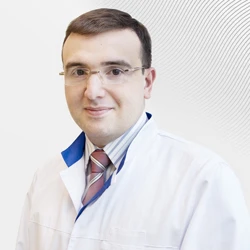
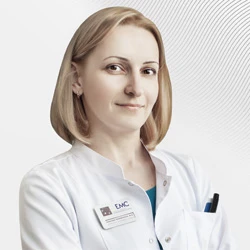
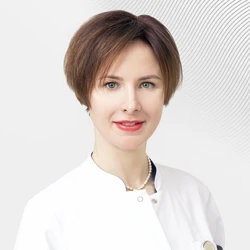
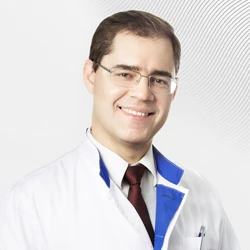
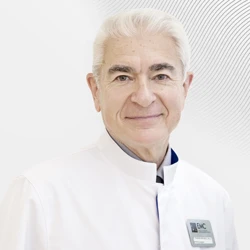
.webp)

.webp)
.webp)

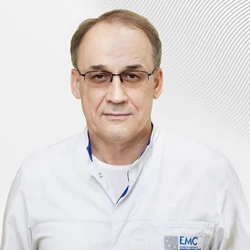
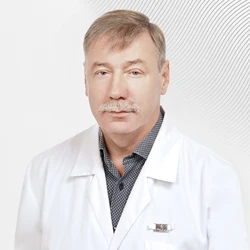
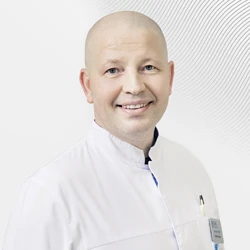

.webp)
